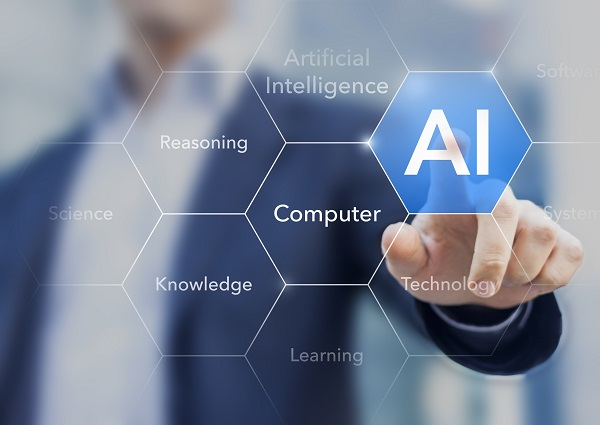ATD Blog
AI Won't Kill All the Jobs
Tue Sep 26 2017

Artificial intelligence (AI) may change the way people work, alter the global economy and reshape business, but it's not the job-killer most people think it is.
Or at least it won't be if workers learn new skills.
Much of the attention surrounding robotics and automation has been "fairly pessimistic and stresses the role artificial intelligence might have on job elimination," said Shonna Waters, vice president of research for the Society for Human Resource Management, at a conference in Washington, D.C., on September 12. However, research shows that "work is going to improve," she said. "New jobs are going to emerge."
And people worldwide will need to retrain.
Waters was among four panelists discussing artificial intelligence at the 2017 Congressional Hispanic Caucus Institute (CHCI) annual Leadership Conference.
CHCI is a Washington, D.C.-based nonprofit dedicated to empowering future Latino leaders. Most of the session's attendees were Millennials—the age group that is forecast to make up 75 percent of the workforce by 2025.
The 2017 Randstad Employer Brand research study from Randstad US found that 14 percent of employees in the United States say they're worried automation will take away their job. Yet, nearly one-third (30 percent) say they think automation will make their job better.
Training Will Be Critical
"The key thing is lifelong learning," said Darrell West, vice president and director of governance studies at the Brookings Institution in Washington, D.C., a nonprofit public policy research organization. "Today you need to think about education throughout your life. You'll need to constantly upgrade your job skills \[because\] technology is going to transform jobs. It's going to take some jobs, but transform some jobs."
Workers may not need as many advanced technical skills as they will need creative abilities. "Once AI is more ingrained in our society, the human focus will shift to "critical thinking and creativity," said Hellmut Adolphs, founder of Intellei, a Washington, D.C.-based startup that develops chatbots. "I don't think machines can do that or will be able to do that. The risks for jobs are obviously there … but I think there will be opportunity for people with additional skills to focus on the human aspects of things."
"Throughout history we've adapted to technological advances, and we expect that will remain true in the future, too," Waters said, adding that "a lot of the concerns \[about job loss\] … are overblown." She pointed out that for companies that have implemented automation, 77 percent report more job gains than reductions.
Ed Loya, senior vice president of HR for Dell in Austin, Texas, said, "Humans have lived and worked alongside machines for decades. But by 2030, these partnerships will \[have undergone a\] change unlike any time before. Humans will serve as human conductors for machines, and every organization will be a digital organization powered by software and analytics."
HR will be at the forefront of this change and will need to be prepared to help people acclimate, the panelists said.
Some Jobs Will Vanish
Driverless vehicles may eliminate the need for truck drivers by 2020. Automated kiosks in restaurants that allow diners to place their orders directly with the kitchen could eliminate the need for waiters. AI platforms that analyze X-rays may eliminate the need for X-ray technicians.
Warehouse jobs and some entry-level positions in other workplaces "are going to get transformed by artificial intelligence and robotics," West said. He is also the founding director of the Brookings Institution's Center for Technology Innovation.
He added that companies shouldn't "delude" themselves into thinking that blue-collar jobs are the only jobs at risk of disappearing once automation, AI and robotics are more fully developed and integrated into workplaces.
"White-collar jobs, too, like accounting and finance" and some in healthcare, will also buckle under the rise of the machines, he said. "What people don't realize is that there are parts of \[those positions\] that can be automated."
Because technology is creating so much data, West said, "if you want a guaranteed job, data science is the key. If you have data skills—regardless of whether you're interested in energy, health care, transportation, finance or anything else—you are going to do just perfectly fine."
However, laws will need to change before AI takes off.
Employers and government leaders need to rethink the "social contract that we have with one another," West said. "The sharing economy is going to require the modernization of human resources and how we think about the law and policies. It's also going to have ramifications for income, health care, retirement benefits and so on. We're going to need to think about how to deliver benefits to people outside of jobs."
Unfortunately, this change hasn't hit the radar of legislators, said Rep. Tony Cardenas, D-California, another panelist.
Although "policy-making is very critical," he said, "we are not convening the hearings or setting bills … or setting the policy, and we're really not debating \[automation and its impact\] at all.
"We should be trying to address this."
Copyright 2017, SHRM. This article is reprinted from https://www.shrm.org with permission from SHRM. All rights reserved.
You've Reached ATD Member-only Content
Become an ATD member to continue
Already a member?Sign In
